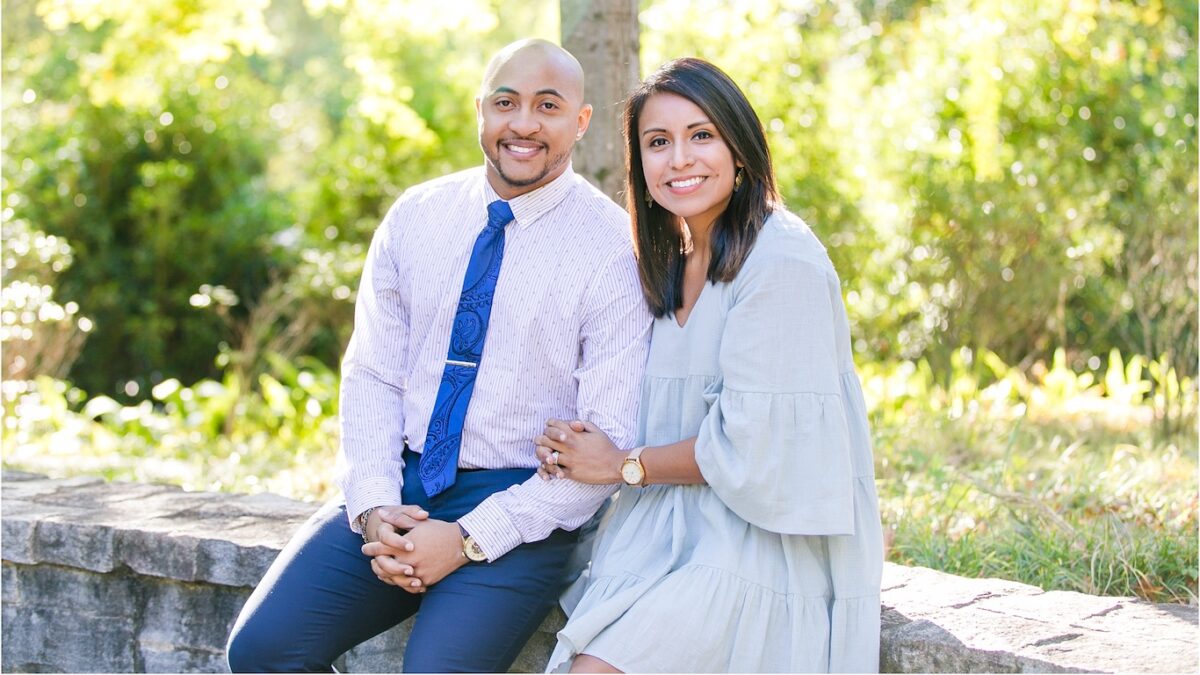Spotlight: Brandeus Davis, senior geospatial analyst

Sharecare’s Community Well-Being Index coalesces more than 600 proven health risk factors in a single measure that quantifies well-being across populations and places by combining both individual health risk factors and social determinants of health (SDOH). Covering an impressive 100% of U.S. counties, all 383 Census-designated metropolitan statistical areas, and 50 states, the Index enables us to recognize the most important health challenges facing our cities, states, and country, as well as the critical impact that the environment plays on our overall health.
By leveraging this multi-dimensional data set, Brandeus Davis, an Atlanta-based senior geospatial analyst, helps our clients and the public reap the insights that the Index has to offer by creating impactful visual elements and breathing life into the numbers. But that’s not all that keeps him busy. Whether he is creating geo-art, writing books, or whipping up a gourmet meal, Brandeus is a true renaissance man worth meeting.
Tell us about your role at Sharecare.
I was promoted recently to senior geospatial analyst here at Sharecare, which reflects an expansion of my previous responsibilities as a geospatial analyst. I compile and analyze large data sets for Sharecare’s Community Well-Being Index and then visualize them in a map or cartographic element that people can understand.
Most people have never heard of geographical information systems (GIS) before, but they likely are familiar with them in the form of Google Maps or other mapping platforms. I work with the technology that powers those maps.
What is your proudest accomplishment as a data analyst?
Since starting in my new role, I’m most proud of my work to infuse environmental data into our unique indexes. When you look at the research, it shows how many variables in our environment can impact our risk for diseases. Our team is working to identify the environmental factors affecting people’s safety, health, and overall well-being. We’ve started analyzing and mapping what chemicals are being released into the environment – like from those big plumes of smoke coming out of industrial facilities – and how harmful they are to nearby residents.
In general, we’ve found that areas with higher minority populations, higher poverty rates, higher crime rates, and lower median household income are where you find a high percentage of cancer-causing chemicals. Some clients have told us they’d like to see what they can do to combat these hazards. That’s so encouraging for me to hear, because I have such a strong passion for the environment.
We heard you’re now a published author. Tell us about your writing.
I recently published two children’s books. The first is “To Find a Whale, You Must Set Sail!” which is about a young whale that gets lost from its family. He travels the world meeting other animals that help guide him home like otters in Singapore and penguins in South Africa. The story explores the power of friendship, all while educating kids about conservation. If I can meet my goal of selling 100 copies, my wife and I will donate 50 copies to metro Atlanta area elementary schools, focusing primarily on the ones that have the highest level of disparities. The second is called “Animals in the Amazon;” it’s for the youngest readers who are just learning how to count from one to 10.
“Murder at the Kennedy Estate,” will be my first murder mystery and it’s currently in the editing stages. I hope the twist will be something that really shocks people. In the story, James Kennedy, a police chief from Seattle, is called home to Portland, Maine for a very special day – his brother is finally getting married. James has waited so long for this day, but tragedy strikes as one of the wedding attendees is tragically murdered the night before the wedding. James and the remaining guests are now in grave danger as he works to uncover the truth and reveal the secrets of the Kennedy Estate before it is too late…
What was the inspiration for your children’s books?
I studied environmental science for undergrad and environmental engineering for my master’s. When I was younger, my parents were teachers in Cobb County, Georgia. My dad left the profession and went to work at the Georgia Aquarium, but my mother stayed in the teaching realm. I wanted to create books that took the environmental concepts I learned during my studies and incorporate them into literacy and education for children.
It’s not about the money, but rather about making sure young readers understand the importance of animals and conservation. Statistics show that by the time I become a grandfather or great-grandfather, some of the animals that I grew up with may not be here. I want to inspire the next generation to think about how we can keep these animals around for a long time.
Do you have any hidden talents?
I love to cook. I especially enjoy making extraordinary dishes for my wife and finding new recipes to try at least once a week. For a time, I was making meals for my dog too.
The more difficult a dish is to cook, the prouder I am when it’s done. I made crab cakes for the first time a few weeks ago and, not to brag, but I was impressed! Whenever I invite my family over for dinner, they always ask me to make my chicken parmesan.
Who do you really admire and why?
I would say my parents, but I also admire my entire family lineage. I know that without their sacrifices, I would not be where I am today. I just hope that when my wife and I decide to have kids, we can make sure to pass a well-lit torch to them so they can be in an even better position than we are.